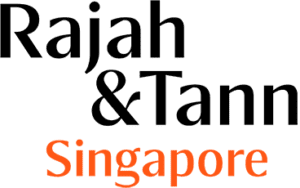Overview
Regulatory enforcement against cartels seemingly slowed down a little from about 2018 and appeared relatively subdued during the COVID-19 pandemic and its immediate aftermath, with pandemic restrictions slowing down the enforcement operations of competition regulators. However, the post-pandemic era has seen a notable rebound in cartel enforcement globally. In Singapore, the Competition and Consumer Commission of Singapore (“CCCS“) has issued three Infringement Decisions involving bid-rigging conduct – a violation caught by section 34 of the Competition Act 2004 (“CA“), which prohibits anti-competitive agreements – over the past year.
The cases go beyond the fact of increased enforcement simpliciter. They highlight the rigour of enforcement CCCS has always exercised, and go further to highlight the heightened use of technology and digital evidence, provide clarity on the meaning of undertakings, and alert that investigations are kick-started through complaints from various sources. Notably, the tenderer had been a key source of information for CCCS in these cases. One can surmise that the advocacy CCCS has undertaken over the years has equipped tenderers with the ability to spot potential violations, i.e. making them more sophisticated.
All said, with the enhanced tools CCCS has and the intent to ensure fair competition in the market with the added aim of protecting consumers, more bid-rigs are likely to be discovered and pursued. We discuss the three Infringement Decisions relating to bid-rigging here, highlighting salient points that businesses must be alert to and ensure compliance within the organisation when responding to calls for bids. The focus of CCCS is not just on bid-rigging, although this is likely easily discernible. The focus extends to price fixing and market sharing too. What this means is that businesses do need to gain a better understanding of how the law can be violated and ensure that proper steps to achieve compliance are put in place.
Infringement Decision against Company and Ex-Director for Bid-Rigging
On 5 September 2024, CCCS issued an Infringement Decision against Rei Securite Pte. Ltd. (“Rei“) and Soh Chee Keong (“Soh“) for engaging in bid-rigging conduct when tendering to supply licences for software and related support services for three invitations to quote (“ITQs“) called by Ngee Ann Polytechnic (“NP“). CCCS commenced investigations following a complaint by NP, which had detected the parties’ anti-competitive conduct.
It was found that Rei and Soh had devised a plan whereby Soh would submit cover bids by two newly incorporated companies for each of the affected ITQs, such that Rei’s bid would be the lowest and most competitive for purposes of securing the ITQs. Soh was the director of one of the two newly incorporated companies. Neither of these newly incorporated companies had intended to secure any of the ITQs, and these companies had no business operations or revenue. Soh also took deliberate steps to create the illusion that the bids submitted by Rei and the two newly incorporated companies were independently prepared, which a review of the metatags, amongst other evidence, quickly revealed otherwise.
This decision marked the first time CCCS had issued an infringement decision deeming an individual to be an undertaking. In this case, CCCS had considered that Soh was considered an “undertaking” for conduct related to his supply of IT support services to the customer in respect of the software licences that Rei was contracted to provide. This serves as a reminder that individuals can be held liable under the CA and may face financial penalties for engaging in anti-competitive conduct if they fulfil the definition of an “undertaking” (i.e. capable of carrying on commercial or economic activities relating to goods or services) and infringe CA.
Infringement Decision on Bid-Rigging in Non-Residential Interior Fit-out Tenders
On 20 December 2024, CCCS issued an Infringement Decision against contractors Flex Connect Pte Ltd (“FL“) and Tarkus Interiors Pte Ltd (“Tarkus“) for engaging in bid-rigging conduct. FL and Tarkus are among a limited number of firms able to undertake high-value contracts relating to interior decoration and finishing works.
An anonymous source complained to CCCS that the parties may be involved in price fixing and bid-rigging activities relating to certain tenders. CCCS commenced investigations, which included raids at the business premises of FL and Tarkus. Following CCCS’ investigations, the two entities were found to have engaged in multiple instances of bid-rigging conduct affecting 12 separate tenders for interior fit-out construction services in non-residential properties across Singapore. While the parties sought to justify their bid-rigging conduct on the basis that declining to participate in a tender would put them at risk of exclusion from future tenders, CCCS opined that this alleged business decision did not constitute a valid justification for the collusive conduct.
It is apposite to note CCCS’ observation that the 12 infringements comprised only instances where there was evidence of submissions of cover tender bids. Accordingly, it remains an open question as to how many instances of infringements had actually occurred where evidence was not readily available, considering that the parties had participated in more than 160 tenders between 2016 and 2021.
Significantly, the financial penalties imposed by CCCS on the parties for their bid-rigging conduct amounted to a combined total of S$9,999,182, marking the heaviest financial penalty CCCS has imposed for bid-rigging to date.
Infringement Decision on Bid-Rigging in Public Sector Tenders
On 23 May 2025, CCCS issued an Infringement Decision against construction firms Trust-Build Engineering & Construction Pte Ltd. (“TB“) and Hunan Fengtian Construction Group Co., Ltd (“HNFT“) for engaging in bid-rigging conduct relating to three invitations to tender (“ITTs“) called by the People’s Association (“PA“) for upgrading works at three Community Clubs.
CCCS commenced investigations in July 2023 based on information received from PA, which had noticed the potential bid-rigging activities even before the tenders were awarded. TB and HNFT were subsequently excluded from the tender evaluations. Following investigations, CCCS found that HNFT had prepared TB’s tender submissions and proposed TB’s bid prices for each of the PA tenders, hence removing all competition between the two of them. CCCS imposed financial penalties on both parties, amounting to a total of S$4,644,409.
A key point to note is that the fact that none of the tenders were awarded to the bid-rigging parties had little bearing on CCCS’ determination of the penalties imposed on the parties. Indeed, to limit penalty calculation to turnover attributable to tenders that were awarded to the bid-rigging parties would defeat the objectives of the competition penalty regime to reflect the seriousness of the infringement and to deter both infringing undertakings and other undertakings from engaging in anti-competitive practices.
Comments
The Infringement Decisions discussed underscore CCCS’ zero-tolerance stance towards cartel activities, particularly bid-rigging, which has remained a recurring focus of its enforcement efforts. In all three Infringement Decisions, CCCS determined that the bid-rigging conduct removed the competitive dynamics between the bid-rigging parties, thereby depriving potential customers from receiving genuinely competitive offers with the best value. In other words, the collusive behaviour gave rise to the likelihood of overpayment by customers for awarded tenders.
Enforcement will continue with vigour not just in Singapore but across multiple jurisdictions. Infringements occurring in one country can easily cross borders and be found as violations in other relevant jurisdictions too. Regulators across the various countries have at numerous forums reminded those operating in the competition community of this, and their advocacy for compliance in this regard has continued.
Ensuring compliance with competition laws is as important as with any other area of law, going to the governance of the business. Businesses must therefore take steps to ensure that employees understand the scope of the law and operate within its boundaries. They must exercise heightened vigilance in reviewing whether their commercial practices are kosher. This calls for training, regular dialogues and – importantly – appropriate SOPs with effective checks and balances. If you have any queries or would like to discuss any of the above points, please do not hesitate to contact our Team members set out on this page.
The Chinese version of this Legal Update is accessible here.
Disclaimer
Rajah & Tann Asia is a network of member firms with local legal practices in Cambodia, Indonesia, Lao PDR, Malaysia, Myanmar, the Philippines, Singapore, Thailand and Vietnam. Our Asian network also includes our regional office in China as well as regional desks focused on Brunei, Japan and South Asia. Member firms are independently constituted and regulated in accordance with relevant local requirements.
The contents of this publication are owned by Rajah & Tann Asia together with each of its member firms and are subject to all relevant protection (including but not limited to copyright protection) under the laws of each of the countries where the member firm operates and, through international treaties, other countries. No part of this publication may be reproduced, licensed, sold, published, transmitted, modified, adapted, publicly displayed, broadcast (including storage in any medium by electronic means whether or not transiently for any purpose save as permitted herein) without the prior written permission of Rajah & Tann Asia or its respective member firms.
Please note also that whilst the information in this publication is correct to the best of our knowledge and belief at the time of writing, it is only intended to provide a general guide to the subject matter and should not be treated as legal advice or a substitute for specific professional advice for any particular course of action as such information may not suit your specific business and operational requirements. You should seek legal advice for your specific situation. In addition, the information in this publication does not create any relationship, whether legally binding or otherwise. Rajah & Tann Asia and its member firms do not accept, and fully disclaim, responsibility for any loss or damage which may result from accessing or relying on the information in this publication.










